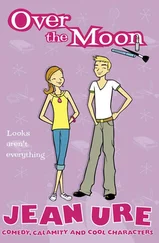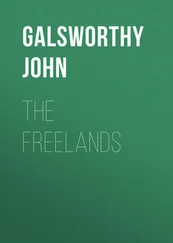John Galsworthy - Over the River
Здесь есть возможность читать онлайн «John Galsworthy - Over the River» весь текст электронной книги совершенно бесплатно (целиком полную версию без сокращений). В некоторых случаях можно слушать аудио, скачать через торрент в формате fb2 и присутствует краткое содержание. Жанр: Классическая проза, на английском языке. Описание произведения, (предисловие) а так же отзывы посетителей доступны на портале библиотеки ЛибКат.
- Название:Over the River
- Автор:
- Жанр:
- Год:неизвестен
- ISBN:нет данных
- Рейтинг книги:3 / 5. Голосов: 1
-
Избранное:Добавить в избранное
- Отзывы:
-
Ваша оценка:
- 60
- 1
- 2
- 3
- 4
- 5
Over the River: краткое содержание, описание и аннотация
Предлагаем к чтению аннотацию, описание, краткое содержание или предисловие (зависит от того, что написал сам автор книги «Over the River»). Если вы не нашли необходимую информацию о книге — напишите в комментариях, мы постараемся отыскать её.
Over the River — читать онлайн бесплатно полную книгу (весь текст) целиком
Ниже представлен текст книги, разбитый по страницам. Система сохранения места последней прочитанной страницы, позволяет с удобством читать онлайн бесплатно книгу «Over the River», без необходимости каждый раз заново искать на чём Вы остановились. Поставьте закладку, и сможете в любой момент перейти на страницу, на которой закончили чтение.
Интервал:
Закладка:
Over the River
CHAPTER 1
Clare, who for seventeen months had been the wife of Sir Gerald Corven of the Colonial Service, stood on the boat deck of an Orient liner in the River Thames, waiting for it to dock. It was ten o’clock of a mild day in October, but she wore a thick tweed coat, for the voyage had been hot. She looked pale—indeed, a little sallow—but her clear brown eyes were fixed eagerly on the land and her slightly touched-up lips were parted, so that her face had the vividness to which it was accustomed. She stood alone, until a voice said:
“Oh! HERE you are!” and a young man, appearing from behind a boat, stood beside her. Without turning, she said:
“Absolutely perfect day! It ought to be lovely at home.”
“I thought you’d be staying in Town for a night at least; and we could have had a dinner and theatre. Won’t you?”
“My dear young man, I shall be met.”
“Perfectly damnable, things coming to an end!”
“Often more damnable, things beginning.”
He gave her a long look, and said suddenly:
“Clare, you realise, of course, that I love you?”
She nodded. “Yes.”
“But you don’t love me?”
“Wholly without prejudice.”
“I wish—I wish you could catch fire for a moment.”
“I am a respectable married woman, Tony.”
“Coming back to England because—”
“Of the climate of Ceylon.”
He kicked at the rail. “Just as it’s getting perfect. I’ve not said anything, but I know that your—that Corven—”
Clare lifted her eyebrows, and he was silent; then both looked at the shore, becoming momentarily more and more a consideration.
When two young people have been nearly three weeks together on board a ship, they do not know each other half so well as they think they do. In the abiding inanity of a life when everything has stopped except the engines, the water slipping along the ship’s sides, and the curving of the sun in the sky, their daily chair-to-chair intimacy gathers a queer momentum and a sort of lazy warmth. They know that they are getting talked about, and do not care. After all, they cannot get off the ship, and there is nothing else to do. They dance together, and the sway of the ship, however slight, favours the closeness of their contacts. After ten days or so they settle down to a life together, more continuous than that of marriage, except that they still spend their nights apart. And then, all of a sudden, the ship stops, and they stop, and there is a feeling, at least on one side, perhaps on both, that stocktaking has been left till too late. A hurried vexed excitement, not unpleasurable, because suspended animation is at an end, invades their faculties; they are faced with the real equation of land animals who have been at sea.
Clare broke the silence.
“You’ve never told me why you’re called Tony when your name is James.”
“That IS why. I WISH you’d be serious, Clare; we haven’t much time before the darned ship docks. I simply can’t bear the thought of not seeing you every day.”
Clare gave him a swift look, and withdrew her eyes to the shore again. ‘How clean!’ she was thinking. He had, indeed, a clean oval-shaped brown face, determined, but liable to good humour, with dark grey eyes inclined to narrow with his thoughts, and darkish hair; and he was thin and active.
He took hold of a button of her coat.
“You haven’t said a word about yourself out there, but you aren’t happy, I know.”
“I dislike people who talk about their private lives.”
“Look!” he put a card into her hand: “That club always finds me.”
She read:
MR. JAMES BERNARD CROOM,
The Coffee House,
St. James’ Street.
“Isn’t the Coffee House very out of date?”
“Yes, but it’s still rather ‘the thing.’ My Dad put me down when I was born.”
“I have an uncle by marriage who belongs—Sir Lawrence Mont, tall and twisty and thin; you’ll know him by a tortoiseshell-rimmed eyeglass.”
“I’ll look out for him.”
“What are you going to do with yourself in England?”
“Hunt a job. That’s more than one man’s work, it seems.”
“What sort of job?”
“Anything except schoolmastering and selling things on commission.”
“But does anybody ever get anything else nowadays?’
“No. It’s a bad look-out. What I’d like would be an estate agency, or something to do with horses.”
“Estates and horses are both dying out.”
“I know one or two racing men rather well. But I expect I shall end as a chauffeur. Where are you going to stay?”
“With my people. At first, anyway. If you still want to see me when you’ve been home a week, Condaford Grange, Oxfordshire, will find me.”
“Why did I ever meet you?” said the young man, with sudden gloom.
“Thank you.”
“Oh! you know what I mean. God! she’s casting anchor. Here’s the tender! Oh! Clare!”
“Sir?”
“Hasn’t it meant anything to you?”
Clare looked at him steadily before answering.
“Yes. But I don’t know if it will ever mean any more. If it doesn’t, thank you for helping me over a bad three weeks.”
The young man stood silent, as only those can be silent whose feelings are raging for expression…
The beginnings and endings of all human undertakings are untidy: the building of a house, the writing of a novel, the demolition of a bridge, and, eminently, the finish of a voyage. Clare landed from the tender in the usual hurly-burly, and, still attended by young Croom, came to rest in the arms of her sister.
“Dinny! How sweet of you to face this bally-hooley! My sister, Dinny Cherrell—Tony Croom. I shall be all right now, Tony. Go and look after your own things.”
“I’ve got Fleur’s car,” said Dinny. “What about your trunks?”
“They’re booked through to Condaford.”
“Then we can go straight off.”
The young man, going with them to the car, said ‘Good-bye’ with a jauntiness which deceived no one; and the car slid away from the dock.
Side by side the sisters looked at each other, a long and affectionate scrutiny; and their hands lay, squeezed together, on the rug.
“Well, ducky!” said Dinny, at last. “Lovely to see you! Am I wrong to read between the lines?”
“No. I’m not going back to him, Dinny.”
“No, never, non?”
“No, never, non!”
“Oh! dear! Poor darling!”
“I won’t go into it, but it became impossible.” Clare was silent, then added suddenly, with a toss back of her head: “Quite impossible!”
“Did he consent to your coming?”
Clare shook her head. “I slipped off. He was away. I wirelessed him, and wrote from Suez.”
There was another silence. Then Dinny squeezed her hand and said:
“I was always afraid of it.”
“The worst of it is I haven’t a penny. Is there anything in hats now, Dinny?”
“‘All British’ hats—I wonder.”
“Or, perhaps, I could breed dogs—bull terriers; what d’you think?”
“I don’t at present. We’ll enquire.”
“How are things at Condaford?”
“We rub on. Jean has gone out to Hubert again, but the baby’s there—just a year old now. Cuthbert Conway Cherrell. I suppose we shall call him ‘Cuffs.’ He’s rather a duck.”
“Thank God I haven’t that complication! Certain things have their advantages.” Her face had the hardness of a face on a coin.
“Have you had any word from him?”
“No, but I shall, when he realises that I mean it.”
“Was there another woman?”
Clare shrugged.
Again Dinny’s hand closed on hers.
“I’m not going to make a song of my affairs, Dinny.”
Читать дальшеИнтервал:
Закладка:
Похожие книги на «Over the River»
Представляем Вашему вниманию похожие книги на «Over the River» списком для выбора. Мы отобрали схожую по названию и смыслу литературу в надежде предоставить читателям больше вариантов отыскать новые, интересные, ещё непрочитанные произведения.
Обсуждение, отзывы о книге «Over the River» и просто собственные мнения читателей. Оставьте ваши комментарии, напишите, что Вы думаете о произведении, его смысле или главных героях. Укажите что конкретно понравилось, а что нет, и почему Вы так считаете.












